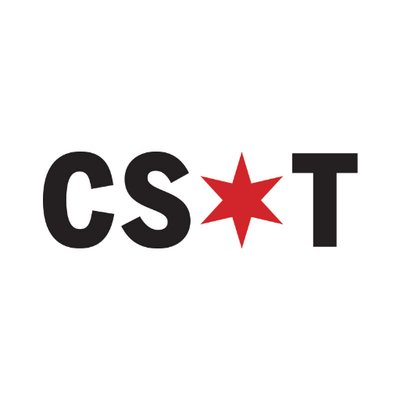



Amid Chicago’s calls for more help with the migrant crisis and at least one township rejecting millions to lend support, the Village of Oak Park has taken emergency action to assist hundreds of unhoused migrants on their doorstep.
The Village Board this week approved special spending for the crisis, passed an emergency declaration and provided emergency shelter for more than 100 migrants staying at the nearby Austin District police station and more.
The suburbs’ moves to ease the crisis comes as the city has been stretched thin by the arrival of more than 20,000 migrants since last August, hundreds of whom that have ended up at the police station half a mile from the village boundary.
During that time, many suburban residents have volunteered at that station and others around the city.
These volunteers have been urging Oak Park to do more, and as the first snow fell Tuesday, they took emergency action with the village to shelter 125 migrants that had been camping outside the station.
“The cold was horrible; we were dying of cold,” said Francis Ramirez Gonzalez, one of the Venezuelan migrants who was moved to Good Shepherd Lutheran Church, the emergency shelter in the village.
The 33-year-old, her husband and their twin 7-year-old’s had been staying in a tent outside the station since August.
They come from the coastal city of Puerto Cabello, where Ramirez Gonzalez’s husband worked on the docks. She was a nurse at a hospital in the nearby city of Valencia.
They left as the country spiraled into crisis, but, on Tuesday, her concerns were more immediate.
“More than anything, I was scared for them,” she said, nodding at her boys Allan and Aaron, who had fever that night.
“We were praying to God to protect us, and thank God someone with a great heart arrived who could help.”

Erik Edición Rodríguez Mundini, left, and Francis Nattaly Ramirez Gonzalez with their twins, Allan and Aaron Rodriguez Ramirez, outside an Oak Park church the village briefly converted into a migrant shelter.
Anthony Vazquez/Sun-Times
Dr. Theresa Chapple, Oak Park’s director of public health, said at the shelter Thursday that it would close Saturday afternoon.
A village official said “conversations” about “next steps” were still ongoing Friday, although church pastor, the Rev. Kathy Nolte, had previously suggested to the Chicago Sun-Times, that as many as 20 migrants might remain.
The emergency move to shelter the unhoused migrants comes just as the city had approved $150,000 to set up an emergency task-force to come up with ways to address the crisis as more migrant families move to the suburb, enroll in schools and also use local emergency services.
Trustee Brian Straw, who co-introduced the task force motion, said Monday the impact on the village had thus far been minimal, but with winter ahead, the need will increase.
“All this is going to result in significant health care costs, we’re going to start seeing an impact in our health care system, downstream impacts,” Straw said, adding that “these are human beings who deserve the dignity of not sleeping on the street.”
On Thursday, Oak Park also approved an emergency declaration to allow the village to approve new contracts quickly, without the regular bidding procedures. That declaration is in effect until Dec. 4.

Oak Park Village trustees Chibuike Enyia and Brian Straw. The two introduced the motion Oct. 30 for the village to establish an emergency task-force for asylum-seekers.
Oak Park Village website
The village’s new spending matches the amount the state awarded the village as part of a program to support municipalities taking on migrants.
Chicago was awarded $30 million of that $42.5 program, which is for shelter and housing support, food, wraparound services, legal support and health care.
Joliet Township was awarded the second most, $8.6 million, but they later rejected that funding.
A state spokesperson said “a decision has not yet been made with regards to use for the funding that had been awarded to Joliet Township.” Grant amounts are expected to be finalized “mid-November,” the spokesperson said.
Other recipients include Lake County, which was awarded over $1 million, the city of Urbana, which was awarded $250,000.
A Lake County spokesperson said that the three local organizations through whom the funds will administered had served 2,000 asylum-seekers in the past year. A spokesperson for Urbana said organizations there had served 300.
Lake County and Urbana officials have said they don’t plan to pursue any of the funds rejected by Joliet, but many in Oak Park — which applied for $7.5 million — hope the village can get more.
Betty Alzamora, a longtime immigrant advocate, is among those pushing for Oak Park and other surrounding suburbs to do more.
Alzamora became involved at the station after driving by it and being reminded of her days volunteering at the Texas border, where migrants in Mexico would pitch camp for months at a time as they waited to enter the U.S.
“These are horrific conditions and the fact that we’ve recreated these less than a mile from our home, it’s heartbreaking,” Alzamora said.
She happens to be Venezuelan, but said that isn’t the only thing driving her.
“These are people from my homeland, but also it’s just the right thing to do,” she said. “When you think of the little kids, the babies, we have to do something.”
Michael Loria is a staff reporter for the Chicago Sun-Times via Report for America, a not-for-profit journalism program that aims to bolster the paper’s coverage of communities on the South Side and West Side.
